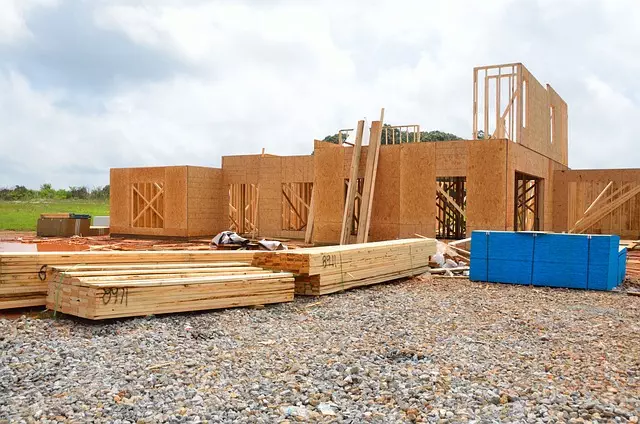Foundation inspection reports are crucial tools for homeowners, offering a detailed assessment of their property's structural integrity. These reports identify issues like cracks, uneven floors, and water damage through expert analyses and photographic evidence, enabling proactive residential foundation repair. Regular inspections prevent severe structural damage, enhance the property's lifespan, and ensure safety. Common findings in these reports range from minor cosmetic concerns to significant structural problems, requiring prompt attention per expert recommendations. Through advanced tools and tailored repair solutions, homeowners can maintain their home's long-term stability and minimize costs associated with Residential Foundation Repair.
“Discover the power of comprehensive foundation inspection reports—your key to ensuring the structural integrity of residential properties. This guide, ‘Understanding Foundation Inspection Reports,’ delves into every aspect from the importance of regular assessments to interpreting defects. Learn how these reports facilitate informed decisions for crucial residential foundation repairs, empowering homeowners and professionals alike. Optimize your knowledge, enhance safety, and navigate repairs effectively with our detailed insights.”
Understanding Foundation Inspection Reports: A Comprehensive Guide

Foundation inspection reports are a crucial tool in the world of residential foundation repair. These comprehensive documents provide a detailed evaluation of a home’s foundation, offering insights into its current condition and potential future issues. By understanding what these reports entail, homeowners can make informed decisions regarding their property’s health and safety.
When conducting a foundation inspection, professionals assess various factors such as cracks in the foundation walls, uneven floors, and signs of water damage. The report includes photos, descriptions, and expert analyses of these observations. It also may offer recommendations for repair or maintenance, prioritizing issues based on severity and potential impact on the structure’s integrity. This knowledge empowers homeowners to address problems early on, preventing more extensive and costly residential foundation repairs in the future.
The Importance of Regular Foundation Assessments for Residential Properties

Regular foundation assessments are an integral part of home maintenance, especially for residential properties. A foundation is the backbone of any structure, and any potential issues can lead to costly and complex repairs if left unchecked. By conducting routine inspections, homeowners and professionals alike can identify early signs of trouble, such as cracks in the foundation walls or uneven floors. Early detection allows for timely intervention, preventing what could become severe structural damage over time.
These assessments are crucial in mitigating risks associated with residential foundation repair. They provide a comprehensive overview of the foundation’s health, enabling homeowners to make informed decisions regarding necessary repairs or preventative measures. Regular maintenance not only extends the lifespan of the property but also ensures the safety and stability of those living within it.
Key Components of a Foundation Inspection Report

A comprehensive Residential Foundation Repair inspection report is an invaluable tool for homeowners and professionals alike, providing a detailed snapshot of a property’s structural integrity. These reports delve into several critical components, each offering insights into the overall health of the foundation. One of the primary areas assessed includes visual examinations, where inspectors closely inspect visible signs of damage, cracks, or unevenness in the foundation walls and floors. This initial assessment lays the foundation (pun intended) for further investigation.
Additionally, the report should incorporate a thorough analysis of the structural elements, such as footings, beams, and columns, ensuring they are securely in place and aligned correctly. Moisture levels and signs of water intrusion are also essential components, as high humidity can lead to serious foundation issues over time. Experts will also consider the surrounding environment, including soil conditions, drainage patterns, and nearby construction, as these factors can impact the stability of residential structures.
Interpreting Common Findings and Defects Noted in the Report

When reviewing a foundation inspection report for residential properties, understanding common findings and defects is essential for homeowners. These reports often reveal issues like cracks in the foundation walls, uneven floors, or bowing walls—all indicators of potential structural problems. For instance, hairline cracks may suggest minor movement but could also point to more severe underlying issues, especially if they are widening over time. Uneven floors might result from settlement or hydraulic pressure, typical in areas with expansive clay soils, and often require professional intervention for Residential Foundation Repair.
Defects can range from cosmetic concerns like small cracks and chips on the foundation surface to more significant structural damage. Homeowners should pay attention to any recommendations provided by the inspector regarding these defects. Addressing them promptly is crucial to prevent further deterioration and costly repairs down the line, ensuring the longevity and safety of the home.
What to Expect During a Foundation Inspection Process

During a foundation inspection for residential properties, homeowners can expect a thorough evaluation of their home’s structural integrity. The process involves meticulous examination of various elements to identify any signs of damage or instability. Experts will closely look at the foundation walls, floors, and ceiling for cracks, settlement issues, water damage, or any other anomalies. They may use advanced tools like moisture meters and ground-penetrating radar to assess the condition of the foundation further.
The inspection report will detail the findings, pinpointing problem areas and providing recommendations for potential residential foundation repair solutions. This transparent process empowers homeowners with knowledge about their home’s health, enabling them to make informed decisions regarding any necessary repairs to ensure a sturdy and safe living environment.
Utilizing the Report for Effective Residential Foundation Repair Decisions

When it comes to residential foundation repair, Foundation Inspection Reports are invaluable tools that provide homeowners and contractors with a detailed roadmap for decision-making. These reports offer a comprehensive analysis of the current state of a home’s foundation, highlighting potential issues such as cracks, uneven settling, or signs of water damage. By thoroughly understanding these findings, homeowners can make informed choices about the best course of action for repairs.
For instance, if the report indicates minor cracks in the foundation walls, it might suggest a simple repair process like injection molding or structural support enhancement. Conversely, severe settlement issues could point toward more complex solutions, such as piering or underpinning. Utilizing the insights from these reports ensures that residential foundation repair projects are tailored to address specific needs, ultimately leading to effective and lasting solutions.
